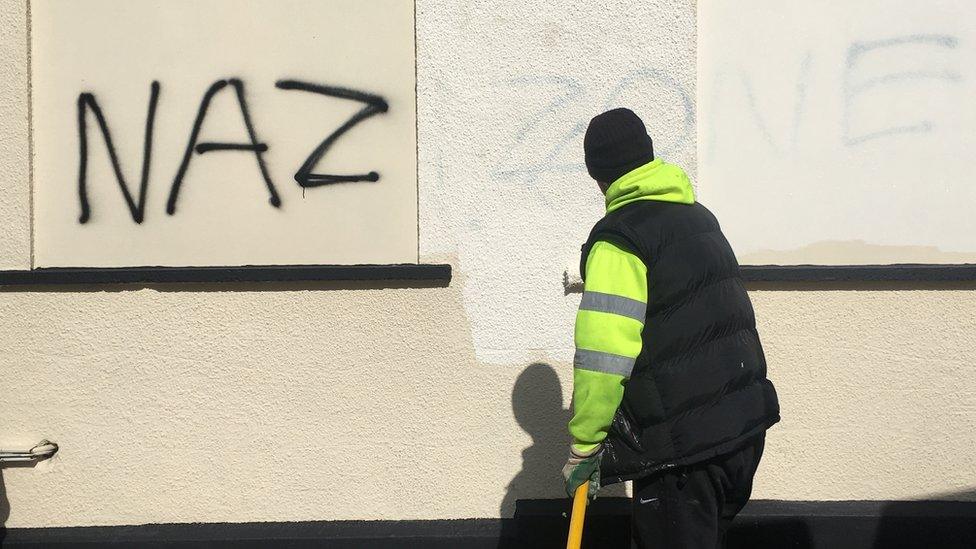Anti-radicalisation co-ordinator: Wales 'far right hunting ground'
- Published
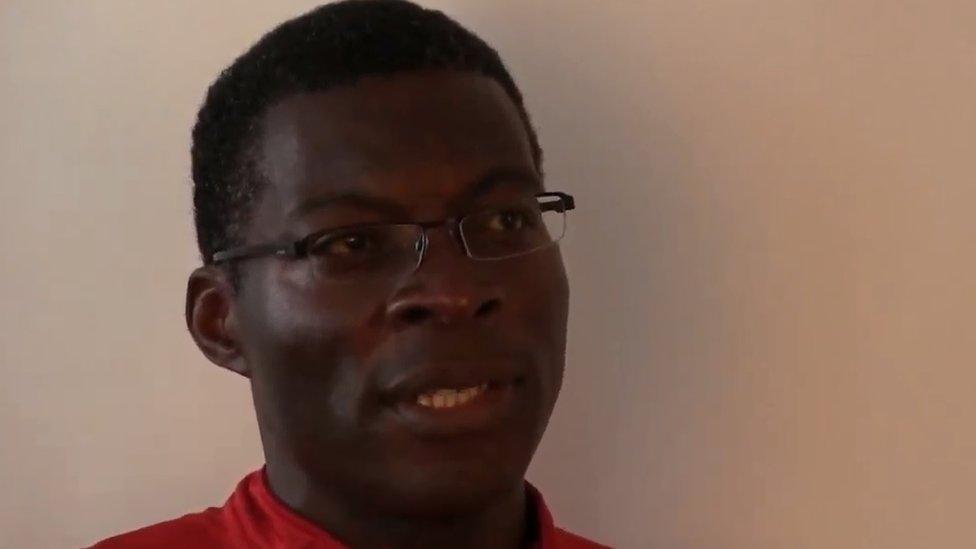
Tony Hendrickson, co-ordinator of anti-radicalisation project Resilience, said Welsh schools are key to combating far right extremism
Wales has become a "hunting ground" for the far right, the leader of an anti-radicalisation project has warned.
Young, poor, vulnerable people are most susceptible to recruitment, said Tony Hendrickson, co-ordinator of the lottery-funded Resilience, external project.
He explained teachers need to be better at spotting and reacting to racism in order to "counter the narrative".
The Welsh Government said it expects schools and local authorities to comply with counter-terrorism legislation.
Mr Hendrickson, 54, who grew up in Llanrumney, Cardiff, is the new co-ordinator of Resilience, which is run by charity Ethnic Minorities and Youth Support Team (EYST).
His warning comes as new figures, external reveal a 36% rise in people referred to the UK's terrorism-prevention programme, Prevent, over right-wing extremism.
A lack of diversity in large parts of Wales makes it easier for the far right narrative to take hold "because it is easier to alienate people if you don't know them", Mr Hendrickson explained.
He added the far right issue is a bigger problem in Wales than Islamist extremism, and has grown as a movement since the Brexit referendum and the election of Donald Trump.
"The Islamist problem has never been that big. If Muslims had really bought into that, there would have been bombs going off every day," he said.
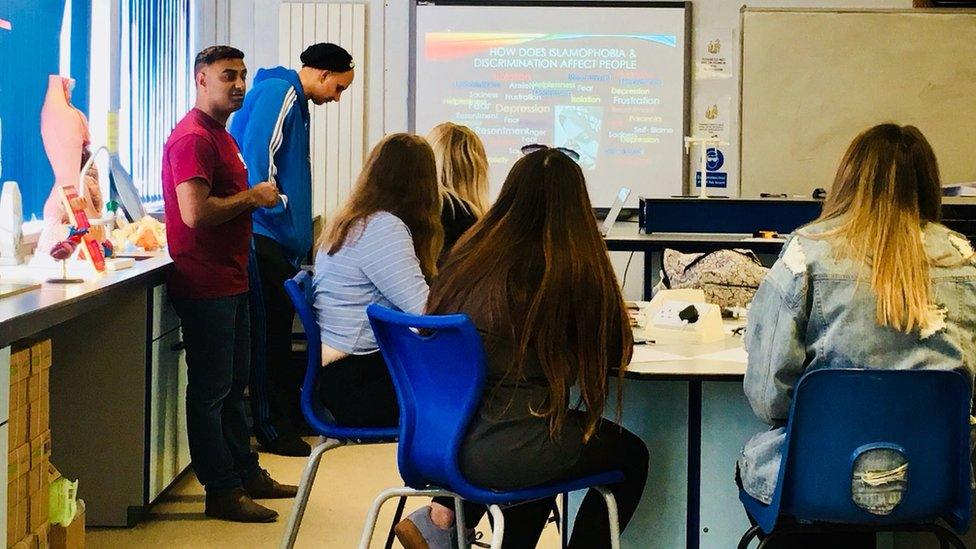
The project aims to build the ability of young, vulnerable people to resist radicalisation and exploitation
Resilience was set up in response to Prevent, which was criticised by some for being "Islamophobic". It works with vulnerable young people at risk of political or religious radicalisation - both to the far right and to Islamic extremism - or sexual exploitation.
"Resilience is about providing a response - a counter narrative," explained Mr Hendrickson.
Working in schools, youth centres, colleges and prisons, he said most of the work his team do is pre-emptive, increasing the ability of vulnerable young people to resist radicalisation or exploitation.
Mr Hendrickson said school staff need to be more aware of racist attitudes among pupils.
Racist bullying
"A lot of schools are still struggling with incidents of racism - either they don't recognise it or they are uncomfortable to respond," he said.
"I don't blame parents but something should be happening at school. We are living in a diverse society, we need to have these discussions."
He used the example of a Syrian boy who was getting into trouble at school to illustrate the problem.
"One of our workers went to the school to speak to the boy, and found out he was being racially bullied," he said. "When he raised that with the teachers, they hadn't recognised that at all."
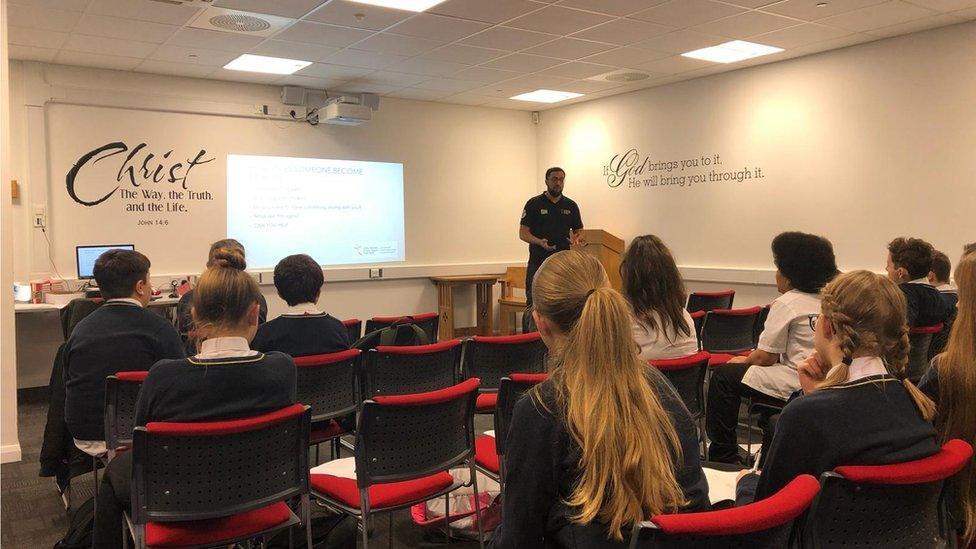
The Resilience project works in schools, youth centres and colleges to "counter the narrative" of right wing extremism
Mr Hendrickson called for diversity education similar to sex education.
He claimed the problem of far right extremism is "cyclical" and "will get worse before it gets better".
"The far right has been emboldened by the rise of UKIP, and to some degree the main parties have bought into that narrative," he added.
"The far right will only ever be violent because the narrative is based on anger and aggression: it's not about dialogue and getting people around the table. For them, it's 'us' against 'them', a race war."
A Welsh Government spokesperson said: "The UK Government published the Prevent Duty Guidance for England and Wales for specified bodies including education providers.
"We would expect local authorities and schools to take reasonable steps to encourage compliance with the responsibilities under the Counter Terrorism Act.
"Our curriculum will aim to develop all our children as ethical, informed citizens of Wales and the world, ensuring they respect the needs and rights of others, as members of a diverse society.
"The safety, security and wellbeing of children and young people is of paramount importance and we expect schools to adopt a zero tolerance approach to all forms of bullying."
- Published13 December 2018
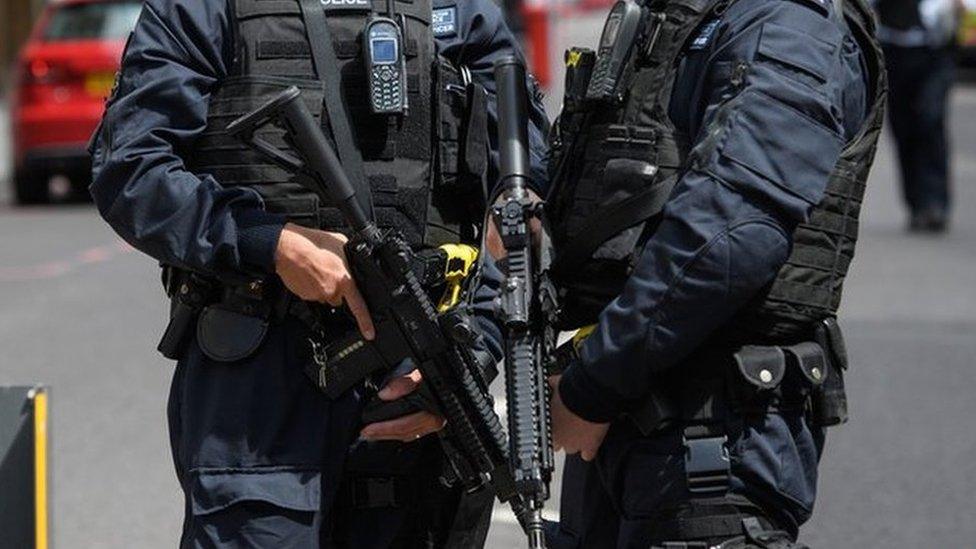
- Published14 December 2018
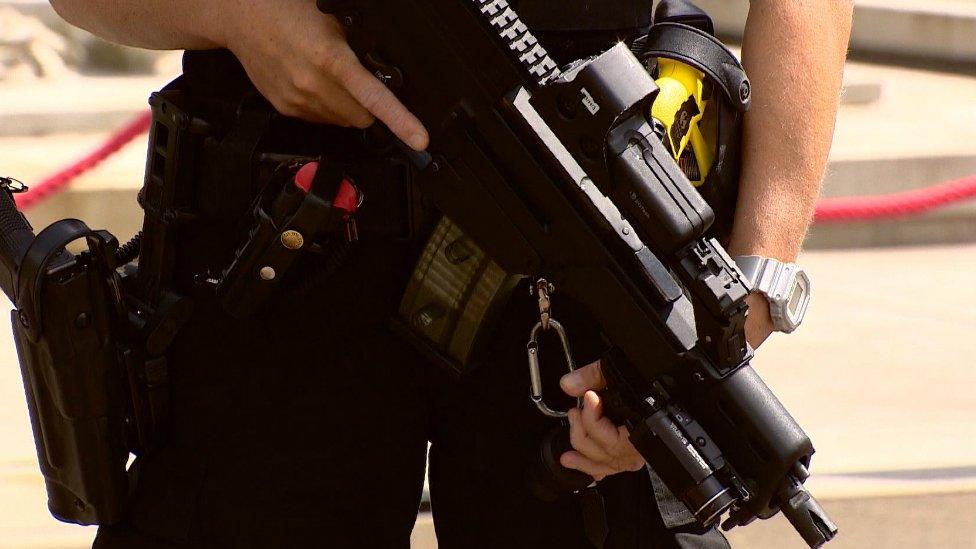
- Published22 December 2017

- Published3 December 2018

- Published23 November 2018
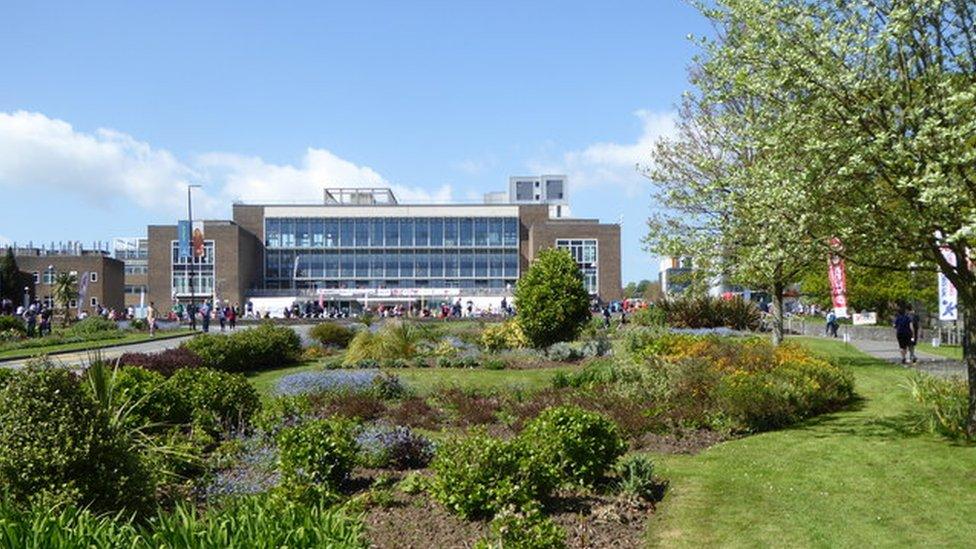
- Published20 September 2018
